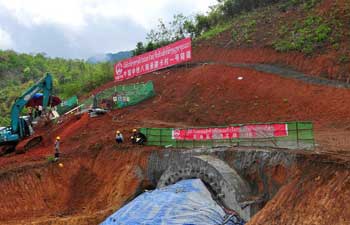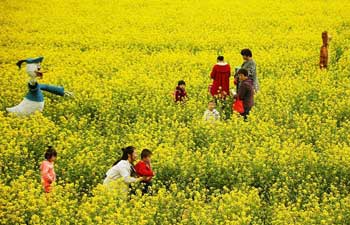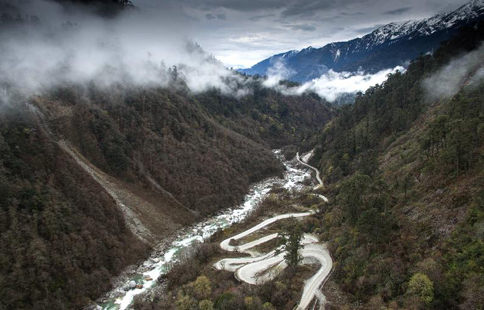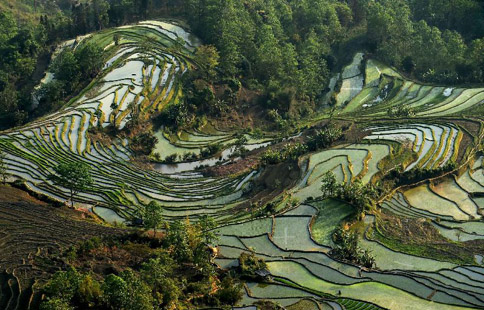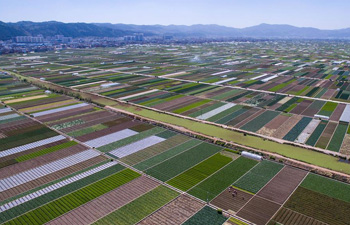SAN FRANCISCO, April 14 (Xinhua) -- A new study calls for policymakers tailor decisions regarding deforestation around Africa's unique dynamics and uncertainties while the region expands production of in-demand commodity crops such as cocoa, soy and oil palm, at the cost of tropical forests.
Published in Environmental Research Letters, the study provides the first comprehensive assessment of how international demand for commodity crops is affecting sub-Saharan Africa's tropical forests, second in size only to the Amazon in South America and almost 30 percent of the world's total.
Since 2015, agricultural production in the region has grown at the fastest rate globally, and cropland is predicted to expand more than 10 percent by 2025.
With its abundant cheap land and labor, sub-Saharan Africa would seem an obvious next step for multinational companies looking to expand farther, as integrated production of in-demand crops has moved away from areas where land is scarce and where natural resource regulations are robust, and moved to tropical regions such as Southeast Asia and South America, where Brazil and Indonesia alone accounted for more than 60 percent of global tropical deforestation from 2000 to 2005.
Although deforestation rates in Africa remain well below those in South America and Southeast Asia, the region has lost an area of intact forest about the size of Iceland since 2000.
Africa's forests, contained primarily in the Congo Basin, are an important source of local income.
In addition to regulating climate, safeguarding water quality and controlling disease, the forests feed and provide subsistence means to at least 100 million people living nearby.
Forest products such as logs generate an average of 6 percent of sub-Saharan Africa's gross domestic product, triple the world average.
"We are starting to better understand issues related to large-scale agricultural expansion in the tropics," said lead author Elsa Ordway, a graduate student in the Stanford University School of Earth, Energy & Environmental Sciences. "In Africa, we have the opportunity to take lessons learned from other regions and recommend preventive policies."
Expansion of commodity crop production in sub-Saharan Africa has so far been driven primarily by small- and medium-scale local farmers who boost the regional economy and can expand with less disruption to forests. As multinational companies move in, they are more likely to acquire land by clearing intact forest due to property conflicts resulting from the region's land tenure complexities.
These companies have bought up a land area larger than Costa Rica in the Congo Basin, mostly for crops such as oil palm and soy, in recent years.
The study's authors suggest Africa could be spared the massive deforestation that large-scale monoculture has wrought on regions such as Southeast Asia by implementing policies that prioritize forest conservation and local control of the land.
In particular, they recommend policies that would alleviate poverty in local regions and incentivize forest conservation rather than the widespread deforestation that has accompanied agricultural expansion in other regions.
"Civil society, policymakers and private companies can benefit from many years of trial-and-error with anti-deforestation policies in South America and Southeast Asia to design more effective interventions in sub-Saharan Africa," co-author Eric Lambin, a professor in the School of Earth, Energy & Environmental Sciences, was quoted as saying in a new release from Stanford.
Among the possible solutions: promoting investment that ensures small and medium-scale farmers continue to drive agricultural expansion in order to alleviate poverty and avoid land tenure conflicts, encouraging shade cultivation of crops such as cocoa to incentivize forest cover conservation, and finding ways to engage African consumers on deforestation issues.




